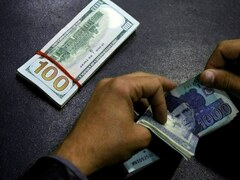After Toyota, Honda Atlas also reduces car prices in Pakistan
Honda Atlas Cars is the latest to announce reduction in car prices by up to Rs300,000, in line with rupee’s appreciation against US dollar in last few weeks.
The new price of the cheapest Honda car in Pakistan – City MT 1.2L is Rs4.699 million after reduction of Rs100,000. City’s top variant Aspire CVT 1.5L is now available for Rs5.849 million after a cut of Rs130,000.
The new prices are effective from October 25.

Earlier. Indus Motor Company, MG Motors, and Lucky Motor Corporation have also reduced their car prices, saying they were passing on impact of the rupee’s recent appreciation.
Honda’s most expensive car – Civic RS1.5L price dropped below Rs10 million after a reduction of Rs300,000. The new price is Rs9.899 million.
Pakistan’s auto sector heavily relies on imports, and car prices in the country witnessed a significant increase over several months due to the local currency’s record depreciation against the dollar.
The rupee even reached a record low of Rs307.1 against the dollar in the inter-bank market on September 5. Since then, it has significantly recovered and is now hovering around the Rs279-280 level.
The currency appreciation came in line with the caretaker government’s action against smugglers and hoarders.
Earlier, other than rupee’s depreciation impact, the auto sector was also hit by the previous government’s decision to put restrictions on imports to save depleting foreign exchange reserves.
Additionally, higher finance costs and massive increase in car prices also reduced consumer demand.
In the first quarter of FY24, car sales in Pakistan stood at 20,983 units, down 40% as compared to the same period the previous year.
“The automobile industry in Pakistan is facing demand challenges, primarily driven by high prices, costly auto financing, and a surge in taxes, resulting in a YoY decline in sales,” Deputy Head of Research, JS Research, Waqas Ghani told Business Recorder earlier.




















Comments
Comments are closed.